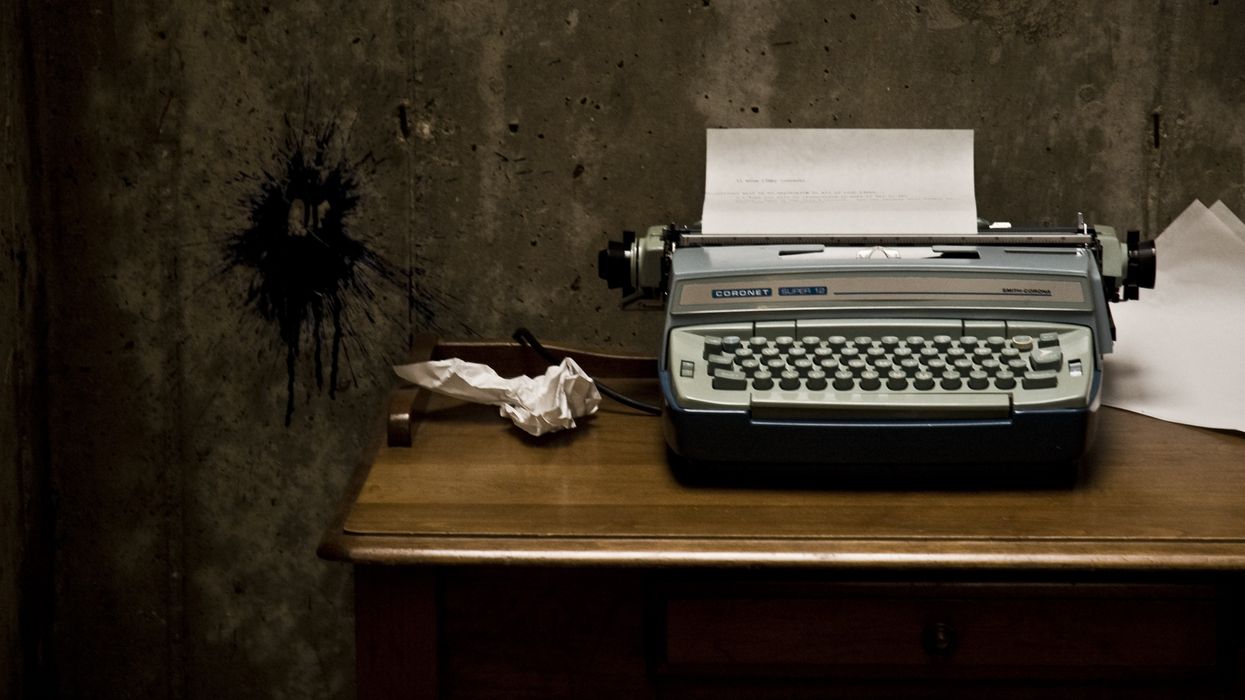Of all the parts of a movie, from cinematography, to editing, and everything in between, writing is perhaps the most (what with all the books, classes, weekend seminars), and least (at the end of the day it's just you and the page), understood. The art of crafting stories and creating indelible characters that will make an unforgettable film is a real gift, though it can and must be developed through careful, patient work. The Guardian has a great piece about a new book that explores creativity, and they've come up with six habits of highly successful writers. Check out the tips below as well as more advice from the masters.
Every artist struggles for inspiration, and on a film set, where time literally is money and the clock is ticking, the sheer weight of a ticking clock forces decisions and, often, inspired improvisations. But the writer, arguably one of the most important contributors to a film, does most of their work away from the set, in the different rhythms of a writing world. As all writers know, there is a place where they're in the zone, and the words flow freely and easily; the trick is getting to that state every time. Many writers, and especially screenwriters, have turned to seminars to help them out (like Robert McKee's, lampooned here in Adaptation, mildly NSFW for Brian Cox' profanity):
The Guardian studied the habits of famous writers as laid out in the new book Daily Rituals: How Artists Work by Mason Currey, and came up with 6 rules for a highly creative mind:
- Be a morning person.
- Don't give up the day job.
- Take lots of walks.
- Stick to a schedule.
- Practice strategic substance abuse.
- Learn to work anywhere.
Currey finds that many highly creative types work best in the morning, like Hemingway, who wrote before dawn. Some have theorized that there is a neurological basis for this; the idea is that the brain is in a different state just after waking that lends itself to that sort of half-dreaminess in which much good writing is produced.
Some writers use their day job as an excuse, but many masters produced their work while holding down a 9 to 5, and the imposition of structure can be healthy for a writer because it makes writing an urgent activity. That was certainly the case for Franz Kafka, who wrote all of his classics like The Trial and The Castle while working in an insurance office in Prague:
"Time is short, my strength is limited, the office is a horror, the apartment is noisy," Franz Kafka complained to his fiancée, "and if a pleasant, straightforward life is not possible, then one must try to wriggle through by subtle manoeuvres."
Writing is a hard activity to make cinematically compelling, though the Coen Bros. pulled it off in Barton Fink, a Kafaka-esque movie that captures perfectly the experience of writer's block, as well as the peculiar life of a screenwriter, whose ambitions towards high art are frequently checked by the realities of the movie business:
One of the most constant elements for successful writers is the presence of a routine (you can find the daily habits of many famous writers here). By doing the same thing every day, father of psychiatry William James stated, we can "free our minds to advance to really interesting fields of action." The whole idea seems to be that if you can clear away the clutter of your life, you leave room for the muse to enter. The trick is to create that little window.
Something as simple as getting to an important task or a bit of writing before starting the rest of the day's routine can set the tenor for the day and lead to more productive hours. Or try writing in 90 minute spurts, then taking breaks, something especially helpful for writers who work from home, where the temptation to start surfing the web or fix that leaky faucet can be especially tempting. By separating the two, you make your writing time more effective.
Filmmaker Ingmar Bergman's daily routine when writing scripts on a remote island in Sweden included waking at 8, writing from 9 until noon, a light lunch (the same thing every day) then more work from 1pm to 3, then a nap and a walk. In the evening, he would see friends or watch a movie. And he never indulged in drugs or alcohol. "The most I drink," the famous director said, "is a glass of wine and that makes me incredibly happy." He kept to this routine for decades, and the world of film is all the richer for it.
You can read more about the rules here, as well as many more routines of famous scribes here.
What do you think? What are some of your favorite rituals? Do you have any superstitions about writing? Do you think following a routine is helpful for a writer? Do you have a routine or tip you'd like to share? Let us know in the comments!
Links:

















